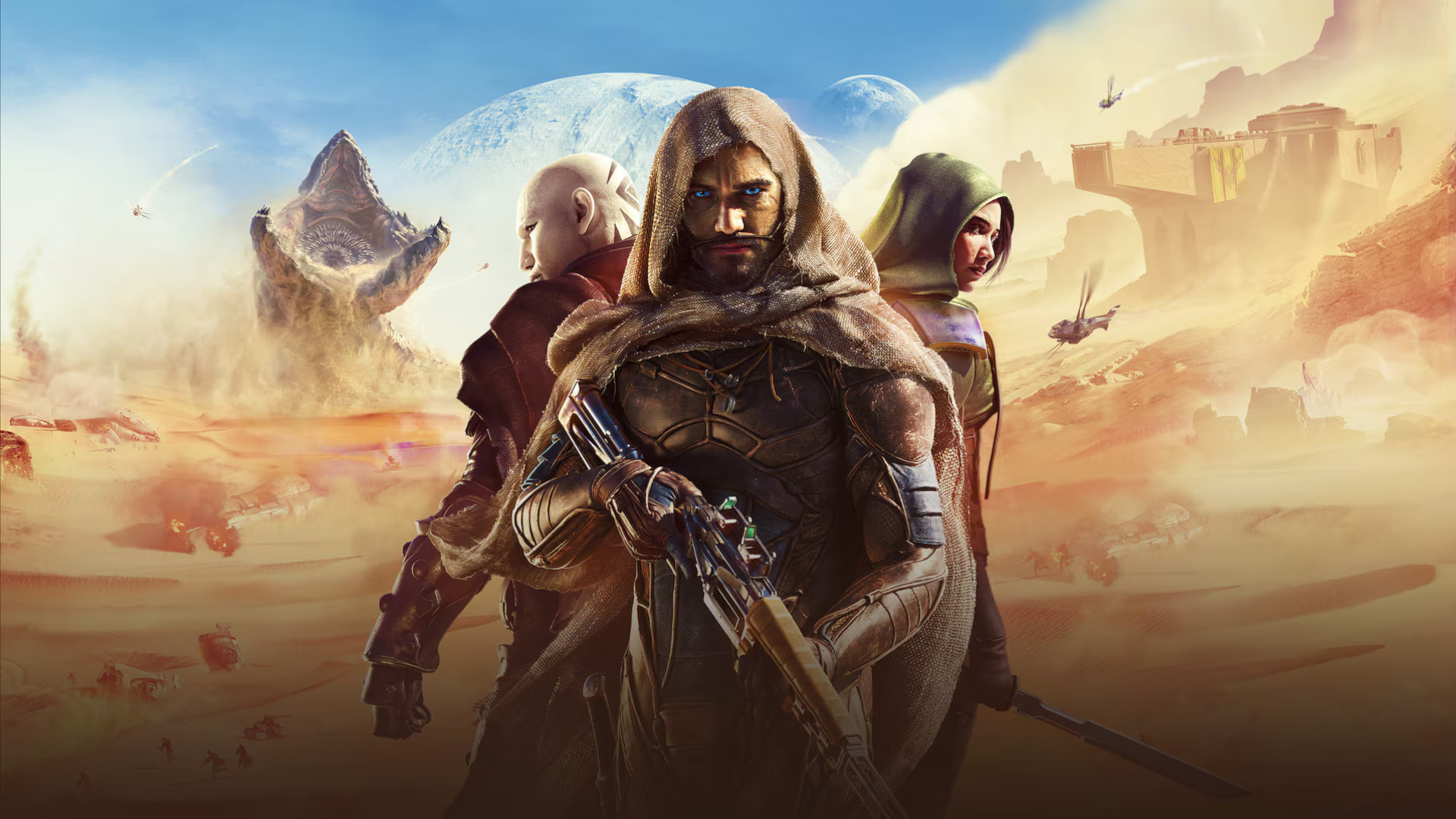GamesRadar+ Verdict
Dune: Awakening is a game that Dune fans will find rapturous but that has a lot of small annoyances that mar it for players who aren't as engaged in the franchise. A solid but not world changing adaptation of a legendary sci-fi series.
Pros
- +
Highly compulsive survival crafting gameplay
- +
Superb sense of place
- +
Great scope for player-powered politics
Cons
- -
Sloth-like pacing
- -
Dull combat
- -
Troublesome UI
Why you can trust GamesRadar+
Life is hard on Arrakis. It's a world where every drop of water comes at the cost of blood, sometimes literally, and where victory is hard-fought. This is the case, at least in Dune: Awakening, the new survival MMO from Funcom, developers of Conan Exiles, The Secret World, and Anarchy Online. You see, Arrakis might look like a rough place to be in the Dune movies, or as described in the books, but it's got nothing on the state of the planet in this game, which takes place in a divergent timeline where Paul Atriedes was never born and the Fremen have disappeared. Aside from players, the surface of the world is home only to scavengers, Sardaukar, and sandworms.
It's impossible to overstate how much of a love letter to the Dune series this game is. Iconic moments, from painful encounters with Bene Gesserit truthsayers to cruising above the desert in wildly flapping ornithopters – it's all here and waiting for you to take the stage. Your created character must venture ever-deeper into the planet, using spice, completing missions, undergoing spiritual trials, and, eventually, taking part in the Landsraad. At least, that's the case if you're willing to play through a fairly plodding tutorial.
Without rhythm
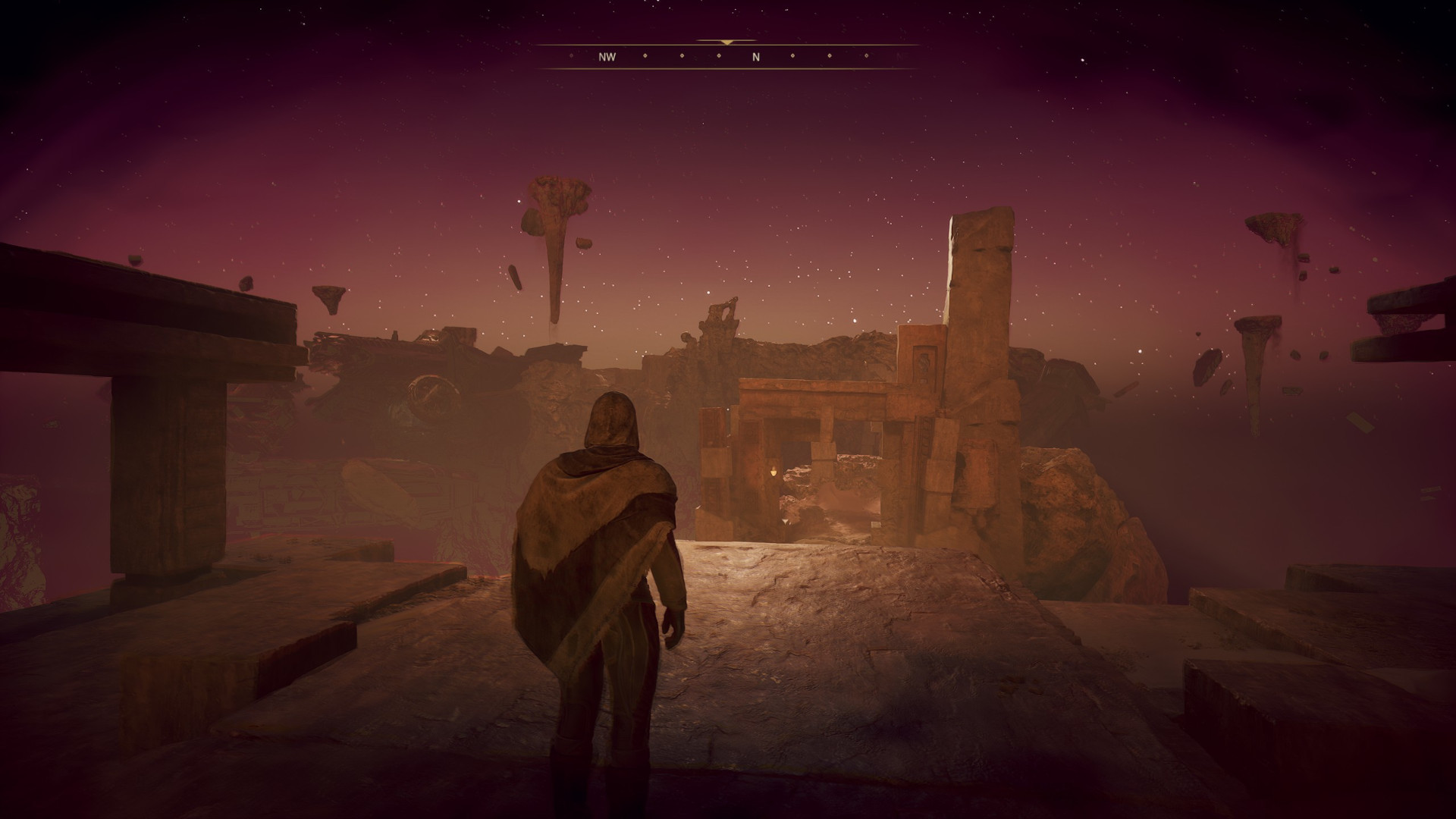
You see, the game has inherited one other aspect of Dune: ponderousness. It's a slow burn of a game and the first few hours, where you'd hope that it would hook you, are overwhelmingly tedious.
Release date: June 10, 2025
Platform(s): PC, PS5, Xbox Series X/S
Developer: Funcom
Publisher: Funcom
After being freed from captivity, your protagonist is let loose in the sandy, windblown wastes. You have no tools, and you must build: get ready to mine some granite! So, you build a little shelter, but then you need to wander off into the desert to go to a trading post, or raid a downed ship for valuable components. So you need to walk across miles of featureless desert, hoping that a sandworm doesn't hear you and snatch you up for dinner. As in the wider franchise, sandworms detect rhythmic sounds, like steps, but you're not able to walk without rhythm. You have two options available to you: walk normally and pray to your particular Dune deity that you'll make it across the sand in time, or inch your way across, offering a negligible advantage but taking far longer.
The scope of the world is very impressive – each section of the map is enormous, but on foot, it's just not fun to explore. Worse still, if a sandworm eats you, you can't retrieve your gear – it's just gone. This led, in one arresting incident, to me running around the world in my pants shivving scavengers for any components that they had, which leads us into another problem: the combat. It's just not particularly engaging. Enemies are frequently equipped with Holtzmann shields, which block projectiles and fast melee attacks. So instead, you just need to hold your mouse click to do a slow attack. That's the high drama inherent in taking on a shielded enemy. They're often paired with unshielded enemies, too, who you typically want to take out with firearms, so you need to do some ungainly weapon swapping on the fly, swapping floaty melee for unsatisfying guns.
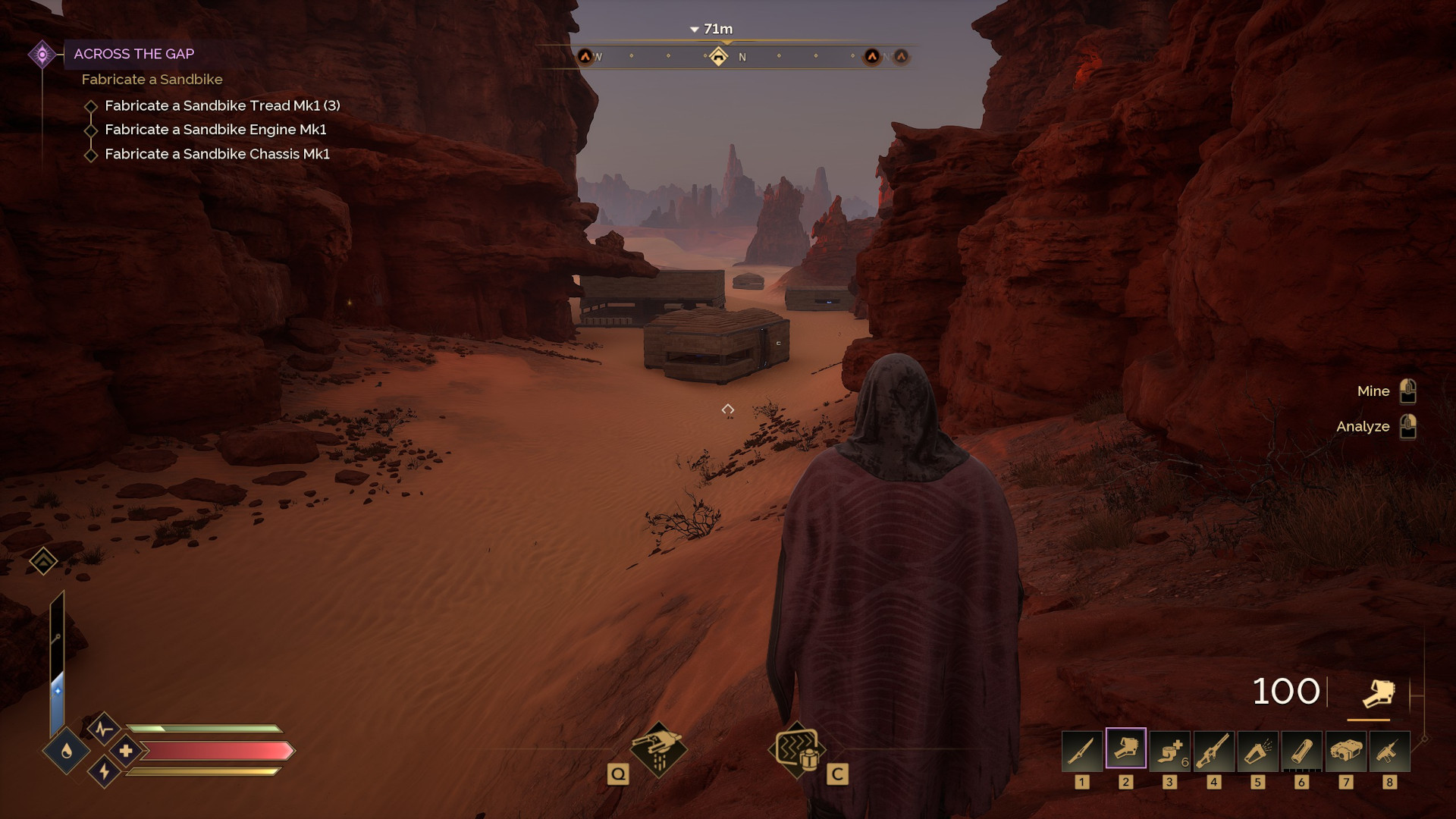
The enemies all look like, well, Dune characters – flowing robes and stillsuits. There's very little to distinguish between different enemy types, which makes quests that task you with killing a specific enemy more of a guessing game than anything else. I essentially never knew that I'd killed my target until I got a little quest pop-up. This, combined with the tedious nature of combat and AI that is almost terminally stupid means that it just feels like a chore. Instead of mining granite, you're now mining human souls directly out of a body, and your cutter ray is now a gun. Enjoy.
While walking across the desert may be dull, there's a level of verticality to Dune: Awakening that feels unmatched by any other MMO. When you're in the middle of a canyon, sheer rock walls looming atop you, you can, at any point, climb directly up the walls like a sandy Spider-Man. I even got an achievement for climbing a particularly large rockface, and the sense of height is fantastic – you really do feel like you're on top of the world. If you have a suspensor equipped, you can bowl yourself merrily into the yawning chasm below, safe in the knowledge that you won't take fall damage.
Weekly digests, tales from the communities you love, and more
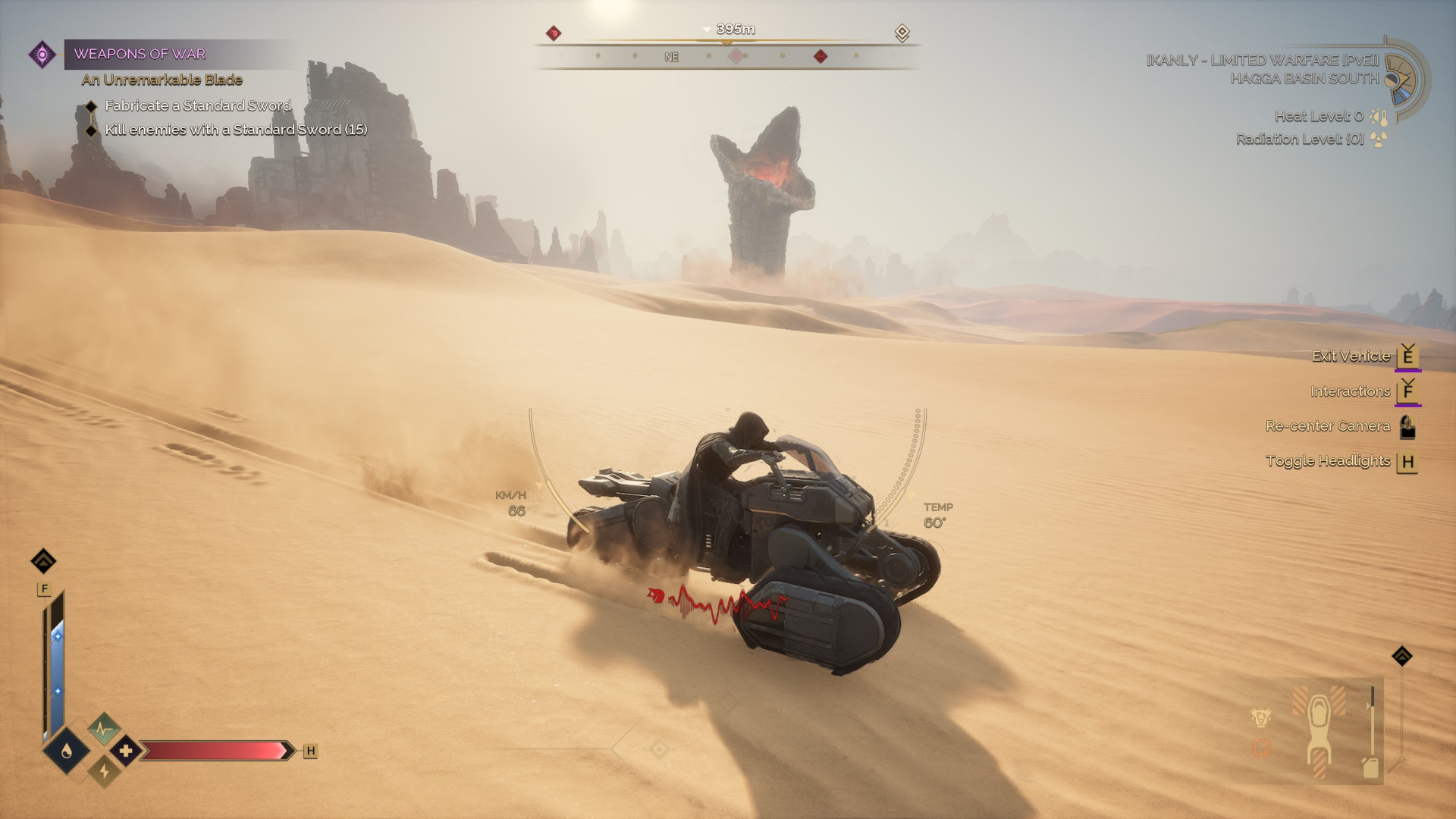
Once you build a sandbike, the world opens up considerably. You'll need it to cross into the second zone, and despite some clunky handling, it makes jetting across the desert extremely satisfying. You're fast enough to avoid sandworms for the most part, which takes the pressure off, letting you really savor the differences between each area.
Moving out of the starter area was where Dune: Awakening really started to get its hooks into me. Here, you gain access to iron, and more and better tools to help you survive. It's where the game started to feel like it understood the survival game rhythm, one where you should always be either gathering or refining resources and where there's always something you need to be doing to help you stay alive.
Tooled Up
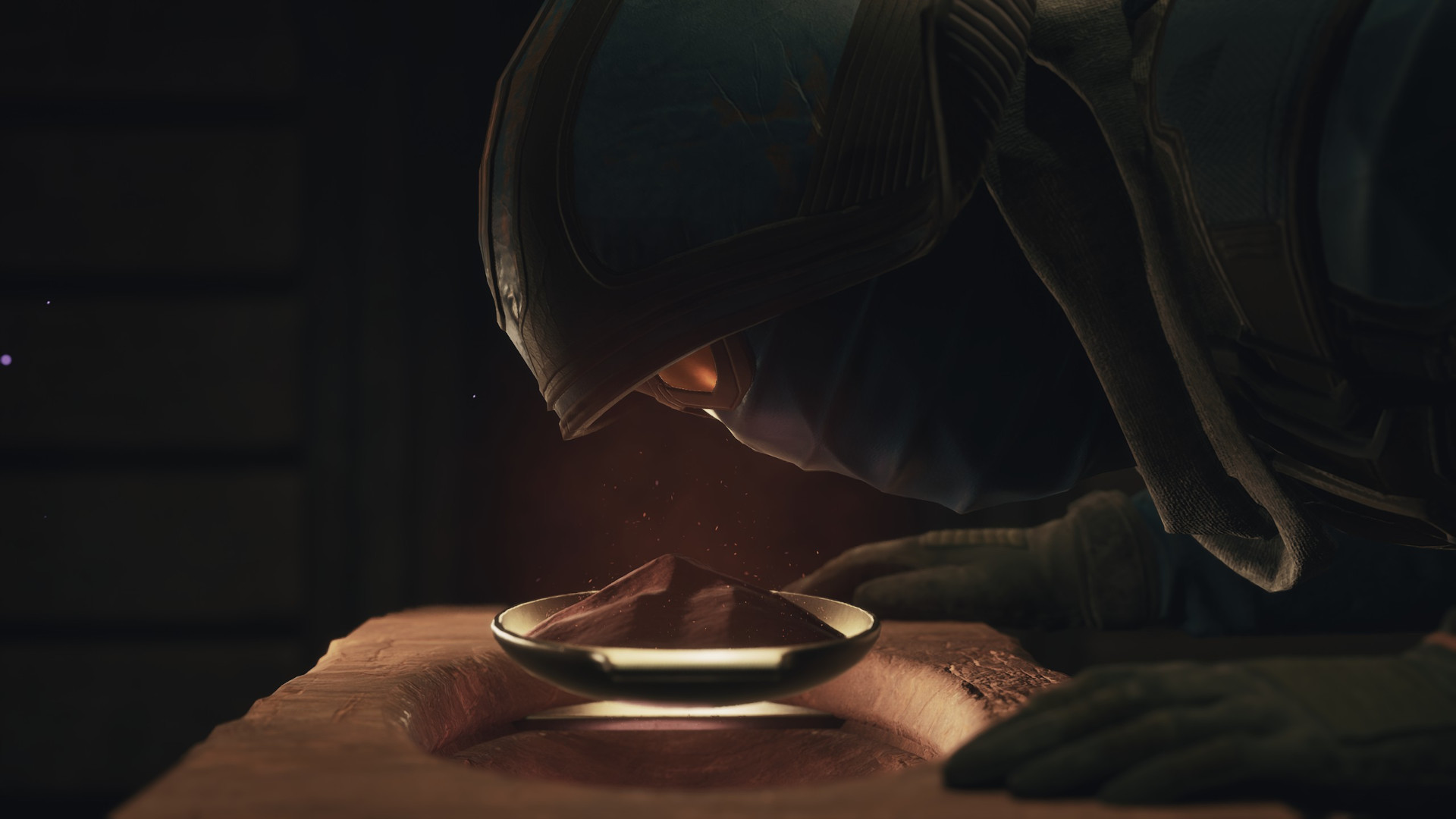
Let's talk about the game's deep and almost fetishistic love of tools. You may think that each tool could serve several purposes, and sure, there do tend to be multiple modes, but you're still going to be carrying around enough tools to make Home Depot turn green with envy. You've only got eight hotkeys, too, and one hotbar. You will, after a handful of hours, need to decide whether to leave some at home or fill up your inventory with items that you might not use. Some items, like the handheld resource scanner, feel distinctly useless, destined to sit in storage forever like a half-forgotten pepper at the back of the fridge.
You may be wondering why, as I'm sure you're aware thanks to your eagle-eyed observation of the review score, I still quite like this game. I've not done much but complain about it so far, and it's true, there are a lot of annoyances. But when the game comes together, it nails a sense of scale and place better than most other games could dream of. The map is gigantic, but all of that would be for naught if it weren't for the fact that the baking heat and shifting sands are palpable. You must manage hydration and keep out of the sun during the day, while avoiding Sardaukar patrols at night. It's a dangerous, deadly place, and it feels every bit of it.
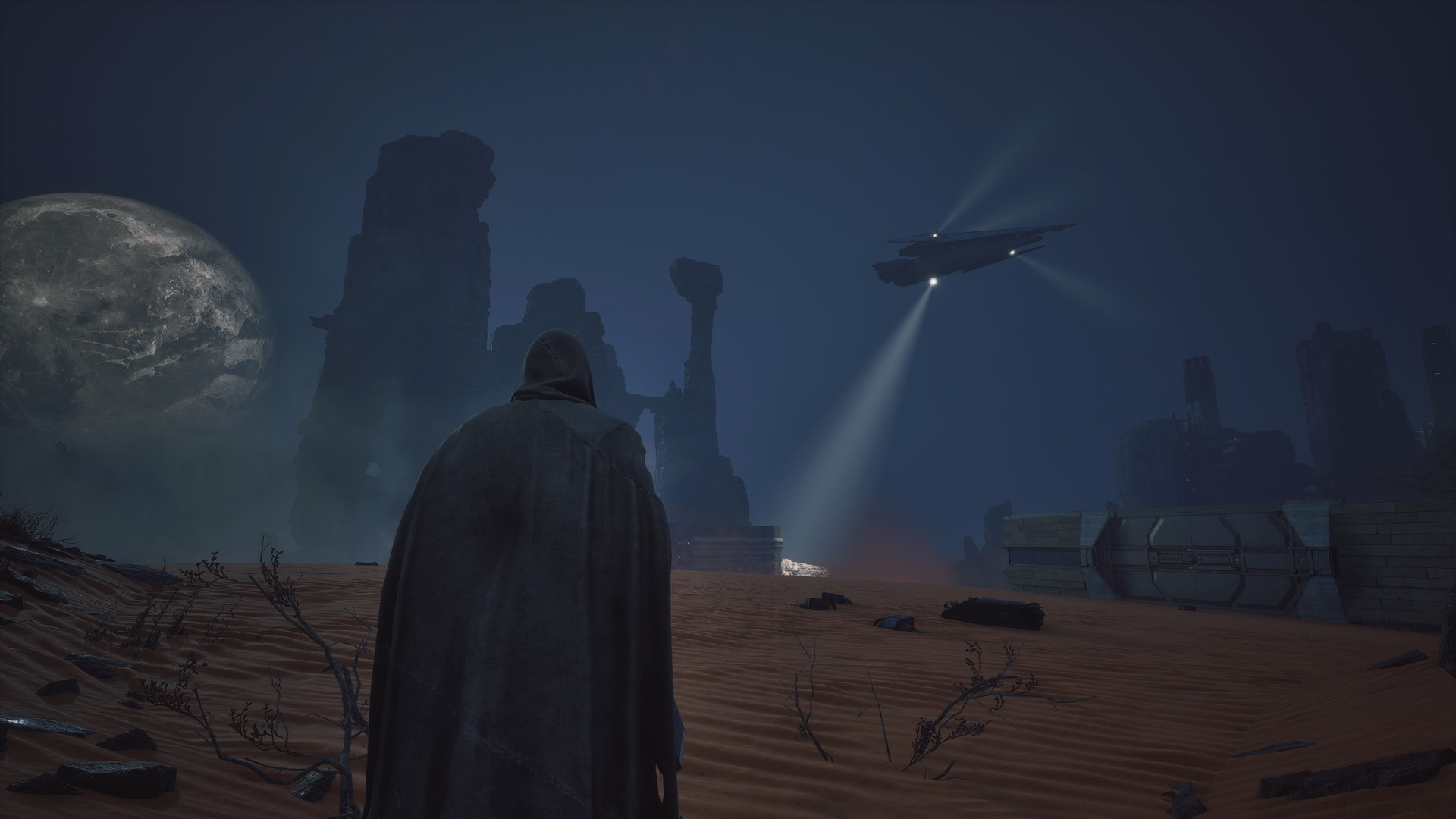
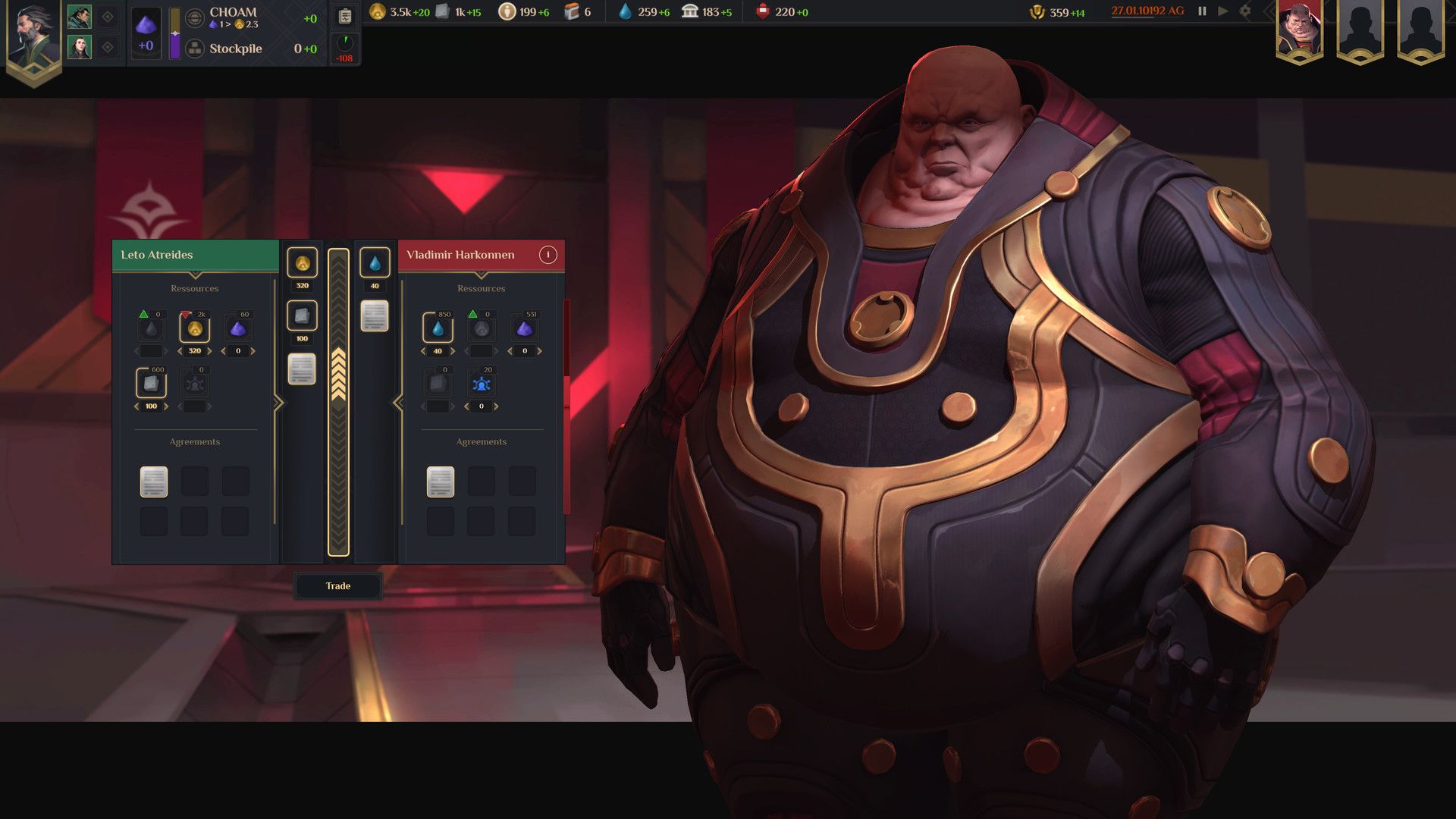
This isn't the first Dune game that Funcom has published. They're also responsible for putting out Dune: Spice Wars in 2022, a generally well-received 4X/RTS hybrid that puts you in charge of a great house vying for control of Arrakis. This might be more up your street if you don't want to have to scramble for a subsistence existence.
There are tons of small hideouts to explore, and the survival game treadmill of learning new recipes, crafting items, then using them to craft ever more, is incredibly compulsive. It doesn't always work, and there are times where you effectively are just doing hydration admin, which feels pretty dull, but the majority of my time, after the first area, was very absorbing. It's certainly true that some recipes require an absurd amount of various materials. The Ornithopter, for instance, needs vast amounts of aluminum, and you need that to access the Deep Desert, where the game's politics and PvP pop. It feels like there's two different games here, one that is more like EvE Online and another that is more like a gentler Rust.
I can't speak much to the late-game politicking, for two reasons: firstly, I was playing solo, and secondly, I had a deadline to hit, and this is a game that is gigantic and, as mentioned, ponderous. However, if you make it into the Deep Desert, you'll find a system that entrusts you with serving either House Harkonnen or House Atriedes and doing various missions to gain points. The top five guilds of the house with the most points then vote on which reward to take, called decrees, which change the shape of the world. These range from increasing melee or ranged damage to making the Deep Desert even more dangerous, with the Right of Salvage decree making you drop all items when killed in the Deep Desert. However, the survival-crafting is mostly strong, even when hindered by obtuse menus that make finding various projects on the tech trees and placeables an exercise in frustration.
It's interesting to note that, as with all things in life, the Deep Desert is ever-shifting. Monstrous sandstorms, called Coriolis Storms, wreak windy vengeance on the map once per week. These wipe out any player-made structures in the area and refresh resources and dungeons, etc. This essentially means that any well-armed and suitably motivated group will be able to make out like bandits and use the Deep Desert to its fullest, rather than having larger groups simply squat in an area.
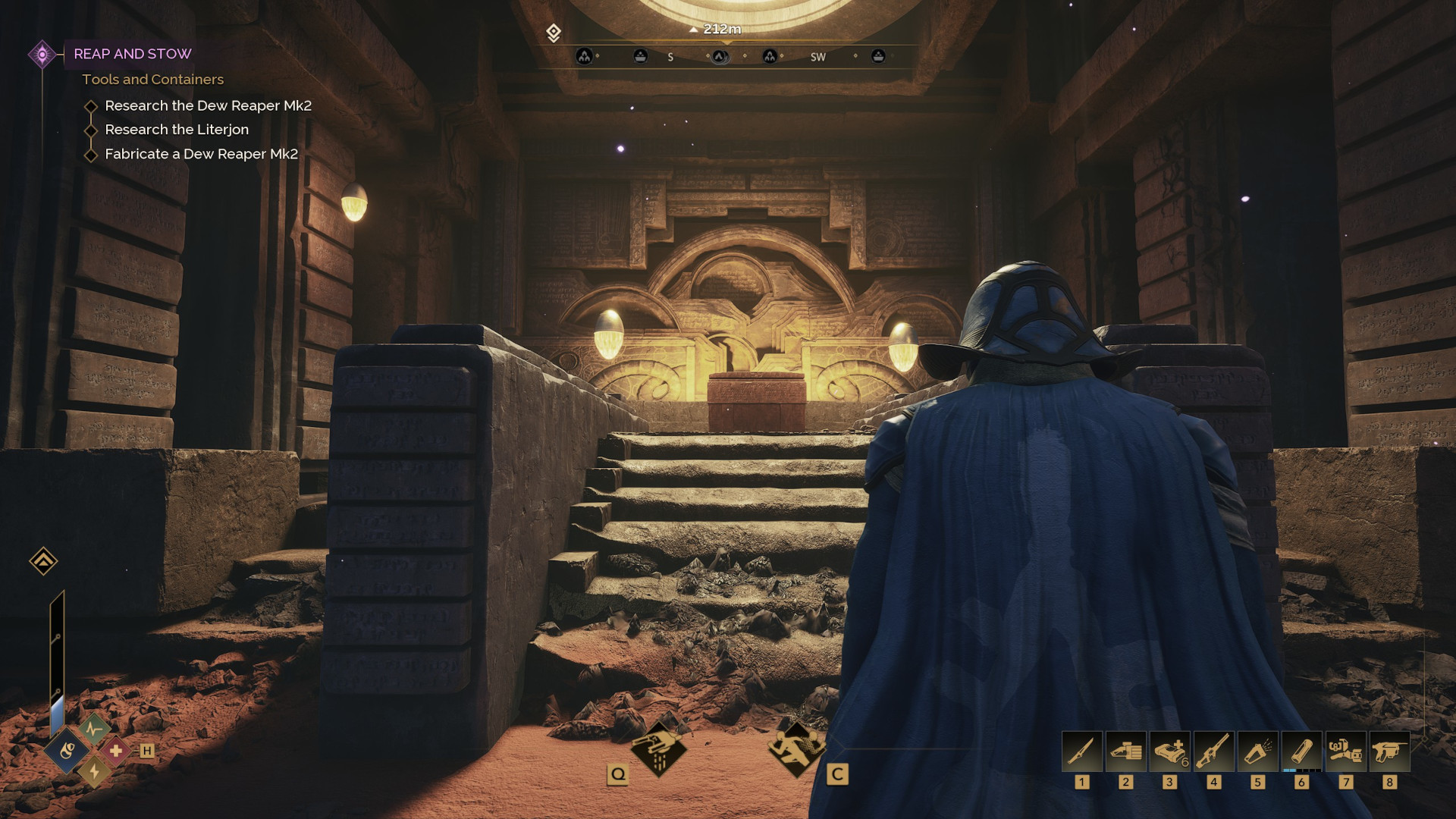
Scraping an existence in Arrakis can feel both extremely compelling and extraordinarily boring, sometimes at the same time. Building your own fiefdom from a single room into a multi-level fortress is a deliciously promising prospect, and it is good fun to stroll around your palatial halls, noting ornamentation that can range from terraria to statues. The process to get there, specifically, isn't a problem – building a new wing is cheap and easy to achieve, it's the rest of the crafting that gets trickier, especially when you start needing water to refine your resources. The treadmill that you run on throughout the game oscillates between a good pace and a sloth-like crawl. It's no wonder, then, that the game's progression feels artificially-inflated, like the game has a pace in mind and wants you to run through it at that exact speed, revealing, all too often, that you are effectively just running through logistical mazes.
The yin and yang of Dune: Awakening are charm and frustration, both in balance with neither overwhelming the other. If you are a huge fan of Dune, it's going to be easy for you to overlook those issues. If you're not, or just have a passing interest in the lore, you may find it's just too difficult to get into. It's a game that is capable of fantastic moments, marred by irritations and a feeling of bloat that ultimately holds it back from being truly great.
Dune: Awakening was reviewed on PC, with a code provided by the publisher.
After move survival? Take a look our games like Valheim recommendations!

Ever since getting a Mega Drive as a toddler, Joe has been fascinated by video games. After studying English Literature to M.A. level, he has worked as a freelance video games journalist, writing for PC Gamer, The Guardian, Metro, Techradar, and more. A huge fan of indies, grand strategy games, and RPGs of almost all flavors, when he's not playing games or writing about them, you may find him in a park or walking trail near you, pretending to be a mischievous nature sprite, or evangelizing about folk music, hip hop, or the KLF to anyone who will give him a minute of their time.
You must confirm your public display name before commenting
Please logout and then login again, you will then be prompted to enter your display name.
